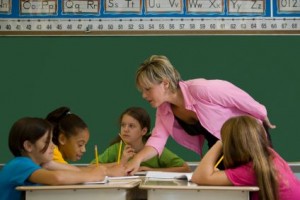 People use eye contact in a variety of ways every minute of every day but how often do you find yourself staring into space with concentrating on an issue or problem? Psychologists now know that people who are carrying out a complex task tend to look away from anyone else who is nearby. They refer to it as ‘gaze aversion’.
People use eye contact in a variety of ways every minute of every day but how often do you find yourself staring into space with concentrating on an issue or problem? Psychologists now know that people who are carrying out a complex task tend to look away from anyone else who is nearby. They refer to it as ‘gaze aversion’.
Now they are finding out how to use changes in a child’s gaze aversion to understand their educational progress. A group led by Dr Gwyneth Doherty-Sneddon at the University of Stirling, and funded by Economic and Social Research Council, has looked at gaze aversion in both children and adults. [continue reading…]
New research from the University of New Hampshire shows that students do much better in school when their parents are actively involved in their education.
Researchers Karen Smith Conway, professor of economics at the University of New Hampshire, and her colleague Andrew Houtenville, senior research associate at New Editions Consulting, found that parental involvement has a strong, positive effect on student achievement. [continue reading…]
Study shows time apart from a parent predicts disadvantages in the classroom
In the wake of divorce, illness, violence and other problems that can unsettle homes, countless young children are liable to experience temporary separations from one or both parents before packing their knapsack for kindergarten. Published in the May/June issue of Ambulatory Pediatrics, a new, community-wide study from Rochester, New York, warns that such kids are at increased risk for learning difficulties and that these separations are good predictors of which children may require special educational interventions to succeed. [continue reading…]
 People use eye contact in a variety of ways every minute of every day but how often do you find yourself staring into space with concentrating on an issue or problem? Psychologists now know that people who are carrying out a complex task tend to look away from anyone else who is nearby. They refer to it as ‘gaze aversion’.
People use eye contact in a variety of ways every minute of every day but how often do you find yourself staring into space with concentrating on an issue or problem? Psychologists now know that people who are carrying out a complex task tend to look away from anyone else who is nearby. They refer to it as ‘gaze aversion’.